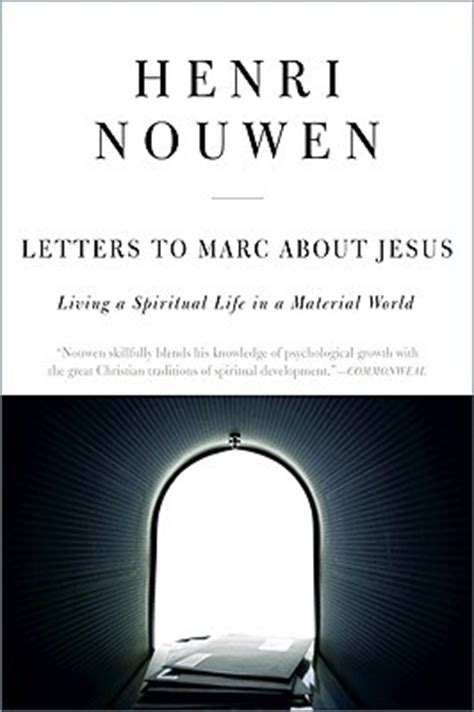Reading:
7. Holding Ground (1987), p. 66 to 80
8. From Communion to Community: The Contemplative Journey (1991), p. 81 to 98
9. A Spirituality of Community (1992), p. 99 to 109
Once again, Henri’s words have sparked deep and insightful comments from many of you. We learn from each other and grown in our understanding when we freely share our various perspectives on the readings. I’m especially grateful for the warm and supportive dialogue that is occurring within our Advent community.
Our first reading this week is based on a talk Henri gave in March 1987, about six months after his arrival at Daybreak. As a committed Nouwen reader but non-expert, it seems to me that this trip to Honduras and the subsequent talk could have helped Henri bring closure to his Latin American experience as he began this next phase of his life in community. Perhaps Raphael became that transitional figure for Henri—a deeply handicapped young man from global south that was living in the same type of community that Henri had recently joined. Touched by Raphael and drawing on his lifetime love and study of scripture, Henri understood his mission in a new way—to hold his spiritual ground and “never to surrender to fear, to pray unceasingly, and to act faithfully by waiting for the Lord” (p. 68)—a universal mission that would guide him for the rest of his life.
The second and third readings were presented about thirteen months apart in 1991 and 1992 and can be seen as precursors to the talk we read in Chapter 1. By the time Henri gave these talks he had suffered and recovered from a severe emotional breakdown in late-1987 that had caused him to leave Daybreak for seven months for intensive psychological and spiritual treatment that ultimately led to the most fruitful period of his life. At the time of these talks Henri was finishing his spiritual classics The Return of the Prodigal Son and Life of the Beloved, both published in 1992.
In Chapter 8 we begin to see the fruits of that healing reflected in the reference to the gospel story from Luke, Chapter 6. Henri writes, “So communion, community, and ministry are places we want to be, but also where we experience great pain and great struggle.” (p. 82) Henri was deeply aware of that pain and struggle. In this chapter we first encounter Henri’s core spiritual insight that “this is what Jesus wants you and me to be, the beloved sons and daughters of God. . . it is only as the Beloved of God, as the beloved daughter, as the beloved son of God, that you might start to get an inking of what it means to live in community and minister.” (p. 85)
In Chapter 9 Henri challenges us recognize, “I’m not the difference that I make, but the sameness I share. . . . Our humanity, our basic identity is not so much rooted in where I am different. What we share or have in common is so much greater than our differences.” (p. 100-101) And what do we share? We are the beloved sons and daughters of God. Henri uses examples from life at L’Arche to show us how to live our shared humanity. We begin by claiming our humanity—it is through solitude and prayer that we enter into communion with God and we know we are beloved. We then reclaim our humanity by embracing our sameness and sharing our gifts and our poverty in community. Finally, we proclaim our shared humanity as we go out from community in service or ministry to those we encounter on our journey.
Reflection Questions:
a) In a comment last week Charles wrote, “I was drawn by the interweaving of Henri’s
writing. . .” and he mentioned several specific items. Are there threads in the readings this week that are interwoven with each other or those of earlier weeks in a way that touched your heart or gave you new insights? Please share.
b) This week, as in all of Henri’s writing, there are so many seemingly simply, yet profound, insights to ponder. Here are a few I underlined. If any of these “speak” to you, please share what you are hearing.
— Belonging to the world means dividing the world into those who are for you and those who are against you. Belonging to God means seeing the world as a world whose people are deeply and intimately loved and thus are truly brothers and sisters. Whatever we do, therefore, should be done with the universal compassion of God. (p. 72)
— We are not called to heroism, but to martyrdom. Heroism calls attention to ourselves. Martyrdom calls attention to God. (p. 79)
— It is really interesting to realize that every time in history that someone really lived in community with God, community happened around him or her. (p. 89)
— And so community is always a life of gratitude—it’s a eucharistic way or living, thanking people for their goodness. (p.92)
— That is the main movement of the gospel. It is not upward mobility, but downward mobility. That is, to become like others and discover in your sameness, in your solidarity, in your connectedness and your sense of belonging, to experience there, the joy, peace, the love, the sense of well-being. I think that’s very much what our communities are about. (p. 102)
As always, please share whatever touched your heart in the reading this week or during our Advent journey. We look forward to hearing from you.
On this Third Sunday in Advent (Gaudete Sunday for many)—“Rejoice in the Lord always; again I say, rejoice.”
Ray

